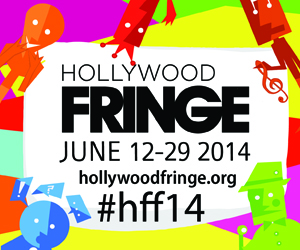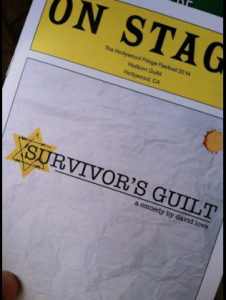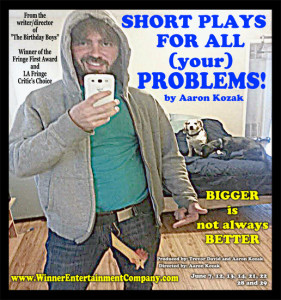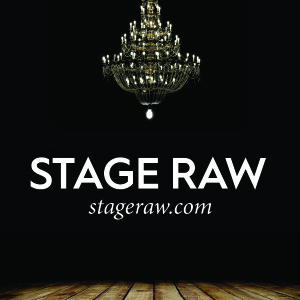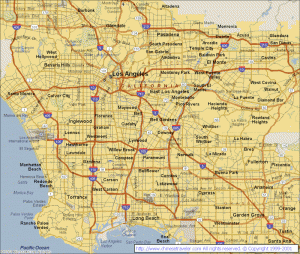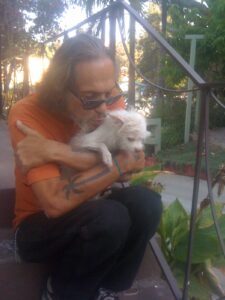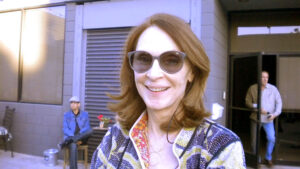CLICK HERE, HERE, HERE HERE, HERE AND HERE FOR MORE HOLLYWOOD FRINGE REVIEWS.
Letter From the Fringe: June 19
By Paul Birchall
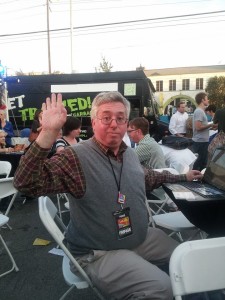
As you run into folks in passing at the Hollywood Fringe this year, you start to discover something a little odd. No one is seeing the same plays! Is this an unusual year in that respect? You find yourself having the same exchange again and again – “Oh, so what have you seen that’s good?” “Well, I saw so-and-so, did you see that?” “Well, no, but did you see such-and-such?” “Nooo, but did you see this-and-that?” This conversation is repeated over and over again at Fringe Central, but with different play titles: It’s like one of those games of concentration in which you try to “match” titles and are never able to.
Everyone is also chasing around, looking for the Golden Ticket — the play that’s just so perfect it alone will justify wading through the dozens of other lesser plays. Here’s the truth, though: I am not absolutely sure that Golden Play actually exists. It’s like the Unicorn or the Yeti. There’s no secret Next Big Thing hiding in the sub-basement of the Underground Basement Theater (formerly a soap box, I’m sure). However, I do think that there are any number of really good, fun plays that are more than worth your time and money. And they can almost just be stumbled upon, let alone searched out for.
This is, I think, one of the benefits of the non-curated festival: Unless you are coming to a certain play for a certain reason – if you know the playwright, the star, or the director – there’s a pleasing random aspect to the festival, whose structure suggests that we need to see at least several plays and then judge the experience as an accumulated aggregate.
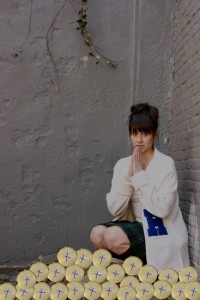
For instance, I found myself at the Asylum Theater (again) for a rather randomly selected play that happened to be going on just when I had an hour free. Playwright performer Mariah Freda’s Jesus H. is, in many ways, quite a typical solo show: It’s Freda’s autobiography, told in a series of interwoven monologues, with the emphasis on religion. On a cross-country plane flight, Freda finds herself sitting next to an African-American passenger who turns out to be a Jehovah’s Witness. At first, Freda wants to ridicule the woman – but her comments send her into a series of meditations on the role of religion in her life.
Freda, a young, appealing performer, is charismatic and tells her story with energy and a sense of humor – but the rather routine tales of prancing about at Catholic school and of certain stern teachers are a little lightweight, as is Samantha Jones’s workman-like direction. So, this is not the Golden Ticket. On the other hand, it was perfectly enjoyable – and the audience appeared to get a lot out of it.
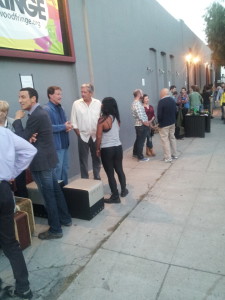
It’s almost hard to get one’s head around the huge number of shows in the Festival. An example: As I left Theatre Asylum, I was startled to see a rather absurd spectacle: A long line of groups of productions, stretching down Lillian Way, all carrying different props and set pieces, waiting patiently for the shows before them to finish up so they could get into one of the six little theaters and set up. It’s just so funny: There’s a group of people in a bunch dressed in Renn Fair outfits – and over there, here are some folks dressed in office wear, except carrying gigantic stuffed sharks and telephones. It’s like a series of costume parties, one right after the other.
Across the boulevard, at the Hudson Guild studio theater, I found myself attending Survivor’s Guilt, playwright-director David Love’s funny, but flawed comedy about cynicism and media. Franklin (Bryan Coffee, channeling nebbish Woody Allen perhaps a little too overtly) is having trouble publishing his novel, so he rewrites it as a memoir, pretending the author is an 89 year old Holocaust survivor. The complications are predictable – and they ensue when the publisher (an excellent, intimidating Paul Zegler) demands to meet the real author. Franklin and his wife Rachel (Becca Murray) hire effete, elegant actor Nigel (William Knight) to portray the old Survivor, but before long, the old man has edged Franklin out of his writing and out of his marriage.
Yes, the notion of poking fun using the Holocaust as a context is indeed a bit of a deal breaker, I suppose, but if one gets past this single (admittedly glaring) notional misstep, this is a really funny farce about deceit and ego. And the performances are really delightful, with the work cast with a brilliant ensemble of the most compelling character actors you ever saw. Knight, whose captivating ham actor Nigel shifts effortlessly from pompous RSC-type thespian to sweetly vulnerable alter-kocher, is amazing – and so is Goldberg, as the crusty, heartless publisher. You just wish that Love had chosen a different backstory from the Holocaust, which is predictably hard to make “funny.”
The thing to do after you see a show, even if it’s nominally a feelgood comedy that uses cheating and lying about the Holocaust as a central conceit, is to hang out at the delightful Fringe Central Station, which, this year, is in that former Post Office parking lot across the street from the Complex. I have ranted and raved for years that one of the things that LA needs is a café that’s dedicated to the theater community — Chicago has one, New York has several – and now, for a couple of weeks, at least, so does Los Angeles.
There’s really nothing much nicer than “holding court” at the Fringe Central after the show! It’s where the cast of almost every show goes after their curtain goes down – for a critic, it can be a little daunting, particularly if you’re about to pan a show, and there they all are having a drink at the next table. For instance, I attended Short Plays For All Your Problems, Aaron Kozak’s collection of clever, but uneven skits, which generally demonstrate a good sense of dialogue humor but a weaker feeling for plot and structure.
A couple of the nine or 10 sketches are really rather ingenious: There’s a crime drama satire in which a homicide detective interviews the characters from the Wizard of Oz for killing the Wicked Witch, for instance. And there’s another really charming vignette, with some homages to Beckett, in which a talking pumpkin (Trevor David) and a penguin (Lenny Hernandez) discuss the inevitability of death. But for the most part, these are slight pieces.
The problem, of course, was that, after the show, I trooped across the street to the Fringe Center for a drink – and so did they, trailing across the boulevard after the next show “loaded into” the Complex space they vacated. It’s fortunate, though, one can easily bury oneself in any number of theater conversations at neighboring tables quite simply: All you have to do is ask anyone at the café “what are you in?” or, if you are not able to do that, you can ask “so what have you seen that’s good?”
